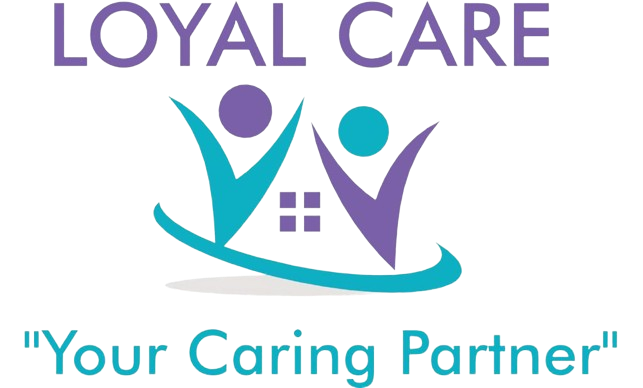-
Email Address
loyalcarehhs@gmail.com -
Call Us
+(757) 965-9137
Assistance with Medication
Medication Management for Seniors

As individuals age, the management of medications becomes increasingly important for their overall well-being. It’s not uncommon for older adults to experience side effects from medications or incorrectly mix up the dosage frequency. This can lead to medication-related problems and adverse health outcomes.
According to a survey by the World Health Organization, strictly following the medications administered by a doctor has been shown to impact the overall well-being of patients positively. So, why, then, do patients ignore their medications?
The primary reason, especially in seniors, is forgetfulness. There is a lack of follow-up in ensuring older adults stick to their prescriptions and dosage, so it’s imperative to remind them or get assistance from a home care service.
To ensure the safety and effectiveness of medication use among seniors, caregivers are vital in providing medication management services to the elderly. They also improve treatment effectiveness by helping seniors follow prescribed dosages and schedules to experience the maximum benefits of their medications.
Medication-Related Problems Among Seniors
Medication-related problems are common among the elderly and can significantly affect their health. Some of the medication-related problems that can arise include:
- Polypharmacy: Using multiple medications simultaneously.
- Adverse reactions: Due to age, their body system might not correctly accept the drugs.
- Insomnia: Inability to sleep.
- Overdosage: Taking more drugs than prescribed.
- Non-adherence: Not strictly following the required prescriptions.
- Cognitive Impairment: Diseases like dementia make it hard to remember prescriptions.
Getting a caregiver’s assistance makes it less overwhelming for older individuals to keep track of their medications
Understanding the Importance of Medication Management
Managing medications for seniors involves more than merely administering pills. Proper medication management is crucial for seniors to maintain their health and adjust to complex post-treatment regimens. It involves helping patients with:
- Understanding medication instructions
- Organizing medications
- Adhering to prescribed dosages
Medication management is two-fold:
Adherence to Medication Regimens: Seniors may have multiple prescriptions with different dosages and administration schedules. Following these regimens diligently is essential for the medications to be effective. Non-adherence can worsen health conditions, hospitalizations, and increased healthcare costs.
Avoiding Medication-Related Problems: Medication-related problems, such as adverse drug interactions, side effects, and overdosage, can significantly impact the health of seniors. Effective medication management helps prevent these problems and promotes overall well-being.
Tips for Effective Medication Management
Caregivers play a crucial role in managing medications for seniors. Not only do they help avoid healthcare costs that would have been incurred if your elderly failed to adhere to their medication, but they help them be more conscious of their health. Here are some practical strategies and tips they can utilize to ensure safety and efficiency:
- Create a Medication Schedule
Develop a clear and organized medication schedule that includes the names of medications, dosages, administration times, and any special instructions. Use tools like pill organizers or smartphone apps to track adherence.
- Simplify Medication Routines
Work with healthcare providers to simplify medication regimens by consolidating doses or using long-acting formulations whenever possible. This reduces confusion and enhances compliance.
- Encourage Communication with Healthcare Providers
Regularly communicate with the seniors’ healthcare providers to review and update medication lists, discuss potential interactions, and clarify doubts or concerns. This collaboration ensures accurate and up-to-date medication management.
- Provide Clear Medication Instructions
Ensure that seniors and caregivers have a comprehensive understanding of medication instructions. Use simple and concise language, provide written instructions, and consider using visual aids when necessary.
- Utilize Reminder Systems
Implement reminder systems to help seniors remember their medication schedules. These can include smartphone alarms, medication reminder apps, or automated pill dispensers that provide visual or auditory prompts.
- Regular Medication Reviews
Periodically review the seniors’ medication list with healthcare professionals to identify potential redundancies, interactions, or unnecessary medications. This promotes safe and effective medication management.
- Engage in Medication Education
Educate seniors and caregivers about their medications, potential side effects, and proper storage. This empowers them to participate in their healthcare activities and promotes informed decision-making.
- Secure Medication Storage
Keep medications in a cool, dry place, away from direct sunlight and out of reach of children. Follow specific storage instructions for each medication.
Core Program Elements:
- Comprehensive client assessment
- Development and implementation client-centered care plan
- Specialized caregiver training and ongoing supervision
- Engaging the client in cognitively stimulating activities
- Assistance with medication management
- Ongoing communication with family and care providers
- Personal care and assistance with activities of daily living
- Housekeeping, laundry, shopping
- Meal planning and preparation
- Appointment escort and incidental transportation
Medication Administration – Getting Assistance For Your Seniors
At Loyal Care, our dotting caregivers trained in medication management can provide invaluable assistance to your elderly loved ones. They can administer medications, monitor adherence, and help seniors navigate complex medication routines. Our medication management strategies encompass a comprehensive approach that ensures medication adherence and optimizes therapeutic benefits.
This doesn’t take away the fact that there is a need for open communication with healthcare providers, organization of medications, and regular medication reviews, which are key to successful medication management. With proper support and attention, seniors can navigate their medication regimens confidently and enhance their overall quality of life.
Remember, effective medication management leads to healthier and happier seniors.
